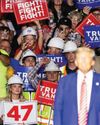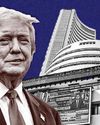Countries, be it developed or developing, are confronting the problem of economic dualism where the technology-oriented sector, which is highly advanced and globally integrated owing to the use of capital intensive resources, employs lesser manpower for production and the social sector absorbs more labour force in spite of having lesser productivity and fails to compete at the international level. It gives rise to a catch-22 situation for policymakers regarding the sector to be promoted, i.e., technology or social.

Economists offer three strategies to sail through this predicament. In the first approach, complete focus is on making investment in skills and training of the labourers as has been done by China. The Chinese made substantial investment in modernising the education sector in general and technical education in particular. A pool of economically efficient engineers (vis-à-vis the US and Europe) churned out the latest technology enabled commodities, which management graduates sold in the big Chinese market. By perfecting their supplies in domestic market, the Chinese companies gained confidence to beat the competition at the international levels. For a country like India, this needs to be done from the school level itself as it is not expected to yield the desired results after the school level.
The second strategy offered is to allow the magnificently operating firms to absorb more manpower. It is projected that many such areas in the supply chain, which do not require high level of skills should be opened up for ordinary labourers.
Even the government can help the absorption of labourers by extending subsidies for the use of labour oriented devices. But there is a fear that absorption of more labour or unnecessarily doing something unnatural can take a toll on the operations of the firm in terms of competitiveness.
This story is from the March 16-31, 2019 edition of BUSINESS ECONOMICS.
Start your 7-day Magzter GOLD free trial to access thousands of curated premium stories, and 9,000+ magazines and newspapers.
Already a subscriber ? Sign In
This story is from the March 16-31, 2019 edition of BUSINESS ECONOMICS.
Start your 7-day Magzter GOLD free trial to access thousands of curated premium stories, and 9,000+ magazines and newspapers.
Already a subscriber? Sign In

Bank of Baroda, Kolkata Zone organised Mega Kisan Melas in West Bengal
Bank of Baroda (BOB) organised Mega Kisan Mela at Konkalitala in Birbhum District of West Bengal on November 18, 2024 as a part of the 7th Edition of the Baroda Kisan Pakhwada (BKP).

Time-Bound Disposal of Cases to Expedite the Delivery of Justice and affordabe by all in India
The delay in the disposal of cases in Indian courts remains a significant hurdle to the nation's progress.

Dev Deepawali: A grand celebration of light, spirituality, and culture in Varanasi
The holy city of Varanasi, often regarded as India's spiritual and cultural heart, came alive with the splendor of Dev Deepawali on the sacred day of Kartik Purnima.

The life of Job 'Ye judge not the judgment of God' - Jesus Christ
The Holy Bible reveals through the life of Job how the Lord tests the righteous and that faith helps one to overcome life's adversities.

India has the highest potential for the garment industry, only a conducive government policy is required.
India's textile industry is poised for remarkable growth, with expectations to double its contribution to the GDP within the next six to seven years.

Global Public Debt may be worse than it appears, warns IMF
Global Public Debt Set to Exceed $100 Trillion, Warns IMF

The economic consequences of Trump's Presidency: A global perspective
One of the key economic factors contributing to the Democrats' loss in the US elections was the significant rise in inflation, which was initially triggered by the COVID-19 pandemic and exacerbated by the Russia-Ukraine war.

Challenges and Successes in West Bengal's Education Sector: A Comprehensive Overview
The education system in West Bengal, particularly in districts, villages, slums, and government institutions, reflects a blend of progress and ongoing challenges.

What India can expect from Trump's return
I may be too early to predict how Donald Trump's second term as president will impact the global oil market.

Stocks Surge Following Donald Trump's Election as 47th President of the USA
Stocks soared following the election of Donald Trump as the 47th President of the United States. Investors anticipated that the Information Technology (IT) sector would benefit from lower corporate taxes under the Republican regime, with IT stocks leading the rally.